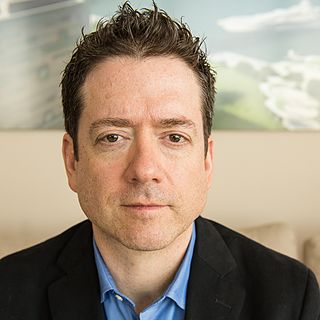A Quote by Jon Krakauer
Mr. Franz, I think careers are a 20th Century invention and I don't want one. You don’t need to worry about me; I have a college education. I’m not destitute. I'm living like this by choice.
Related Quotes
I think our children will be living on floating cities, and they will look back on the 20th Century, when people lived in primitive governments founded in previous centuries, and they will be living on modular, sustainable, floating cities that we can't imagine now, that are based on the voluntary choice of citizens. I think we will have a marvellous world in the 21st Century.
You have a job but you don't always have job security, you have your own home but you worry about mortgage rates going up, you can just about manage but you worry about the cost of living and the quality of the local school because there is no other choice for you.rankly, not everybody in Westminster understands what it's like to live like this and some need to be told that it isn't a game.
I think that poets can say, "What we want is for everybody on earth to wake up free from fear and with access to medicine and clean water and education." But I don't think poets have any special insight on how to get there. And the 20th century is a pretty good record of that because so many of the great poets were Stalinists: Vallejo, Neruda, Eluard, Aragon, etc. They wrote their odes to Lenin and Stalin. They glorified some of the most violent and grotesque dictatorships of the 20th century. And a lot of the ones who were not Stalinists were fascists or fascist sympathizers.
We need to have an education system in New Jersey and all over the country that makes all of our kids, either college or career ready. It should be their choice. I mean, every kid doesn't want to go to college. But I think we should aspire to let every child reach his maximum or her maximum potential.
We often think about happiness as trying to increase our joy, but it's also about decreasing our worry. So what you get for paying those high taxes is, if you're a parent thinking about putting your child through school, you don't have to worry about it, because all education through college is free.
The different American experience of the 20th Century is crucial because the lesson of the century for Europe, which essentially is that the human condition is tragic, led it to have a build a welfare system and a set of laws and social arrangements that are more prophylactic than idealistic. It's not about building perfect futures; it's about preventing terrible pasts. I think that is something that Europeans in the second half of the 20th century knew in their bones and Americans never did, and it's one of the big differences between the two Western cultures.
Until the Left took over American public education in the second half of the 20th century, it was generally excellent - look at the high level of eighth-grade exams from early in the 20th century and you will weep. The more money the Left has gotten for education - America now spends more per student than any country in the world - the worse the academic results. And the Left has removed God and dress codes from schools - with socially disastrous results.





































